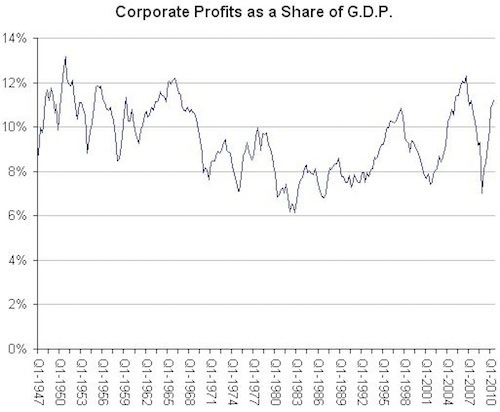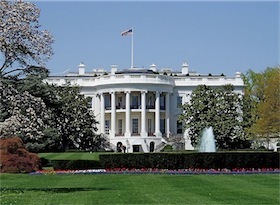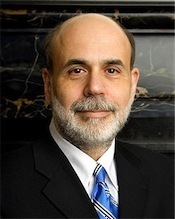Matthew Yglesias's Blog, page 2488
November 25, 2010
Green Bean Casserole
In my family (and I think in NYC more broadly) people casseroles aren't really traditional food, unless you count Italian-American dishes like baked ziti or lasagna or whatever. So for a while now I've been grimly fascinated with old-school midwestern casseroles and last weekend for "Friends Thanksgiving" I undertook to try to cook a non-disgusting version of green bean casserole that wouldn't rely on canned goods.
Fortunately, Alton Brown turned out to have a good recipe. I found it kind of challenging to make the fried onions come out evenly, but they're pretty tasty. And the cream of mushroom soup from scratch is delicious. At the end of the day, I think I would have preferred to just eat the soup and maybe sautée some green beans with onions. But the combination is pretty good, and apparently considered de rigeur at some holiday gatherings.


Waiting Room
Richard Phillips observes that one of the best mashups on the new Girl Talk album is Rihanna's "Rude Boy" plus Fugazi's "Waiting Room" at around 5:37 on "Let it Out".
I would only add to this that one of my favorite full track mashups is Fugazi vs Destiny's Child, melding "Waiting Room" with "Independent Woman." The fact of the matter is that "Waiting Room" was just born to be a fun song, and it's hopelessly sabotaged by Fugazi's fundamentally anti-fun ideology. It takes the mash-up era to unleash the lurking genius in this tune.


Reality Check
Something I find incredibly puzzling is the strange determination many progressive have to diagnose what the "problem" is with Democrats that makes them so "bad" at electoral politics. They actually seem to me to be fine. Look at the 30 year span from 1980 to 2010. The Democratic candidate won the popular vote in 1992, 1996, 2000, and 2008 (4 times) whereas the Republican candidate won in 1980, 1984, 1988, and 2004. It's true that in the real world the poor ballot design in Palm Beach County, the Supreme Court, and the Electoral College put George W Bush in the White House but none of that is the fault of Democratic Party messaging tactics.
Democrats controlled the House for 18 out of those 30 years, and controlled the Senate for 14 out of 30 years. In the new year, they'll control two out of the three branches of government. None of that sounds to me like a political party that's having trouble persuading people to vote for it.
What's more, you need some kind of baseline against which to judge this. Over the 60 year lifespan of the Federal Republic of Germany, Social Democrats have run the government for 20 years. Over the 50 year life of the 5th Republic in France, the Socialist Party has held the presidency for 14 years. The basic idea of a center-right party is that it represents a coalition of the business establishment with the socio-cultural mainstream. That tends to give you a dominant position in politics.


Thanksgiving
November 24, 2010
Endgame
Yeah! Big Apple!
— Walmart seems to be winning over my neighborhood blog commenters.
— Another win for JournoList.
— How come no Tea Partiers want to repeal the 2003 Medicare prescription drug benefit.
— Negotiating with North Korea should start with low expectations.
— Key thing to remember about Korea is that ROK victory in a war over DPRK would leave them with the unsolvable problem of running the former DPRK.
Heading up to NYC for the Thanksgiving holiday, so it's the Yeah Yeah Yeahs' "Yeah! New York."


Understanding Too Well
Richard Cohen did a good yesterday about Sarah Palin, Michelle Obama, and race:
It is Sarah Palin who brings back these memories. In her new book, she reportedly takes Michelle Obama to task for her supposedly infamous remark from the 2008 campaign: "For the first time in my adult life, I am proud of my country because it feels like hope is finally making a comeback." [...]
It's appalling that Palin and too many others fail to understand that fact – indeed so many facts of American history. They don't offer the slightest hint that they can appreciate the history of the Obama family and that in Michelle's case, her ancestors were slaves – Jim Robinson of South Carolina, her paternal great-great grandfather, being one. Even after they were freed they were consigned to peonage, second-class citizens, forbidden to vote in much of the South, dissuaded from doing so in some of the North, relegated to separate schools, restaurants, churches, hotels, waiting rooms of train stations, the back of the bus, the other side of the tracks, the mortuary, the cemetery and, if whites could manage it, heaven itself.
It was the government that oppressed blacks, enforcing the laws that imprisoned them and hanged them for crimes grave and trivial, whipped them if they bolted for freedom and, in the Civil War, massacred them if they were captured fighting for the North. And yet if African Americans hesitate in embracing the mythical wonderfulness of America, they are accused of racism – of having the gall to know more about their own experience and history than Palin and others think they should.
The one twist I would give here is that I suspect Palin and her ilk actually understand this all too well. And that's precisely the issue with all the various insinuations that the Obamas are somehow insufficiently American. This is a polite way of saying that they're too black. White people understand perfectly well that black people's understanding of America isn't the same as white people's understanding of it, but they prefer the white understanding. In general, Americans and foreigners alike prefer nationalist mythology to real history. They know the mythology is inaccurate, but they still like. And they worry about the idea of people whose ethnic background foregrounds the ugly truth.


IMF vs ECB: Who's More Austere?
I'm going to agree with Henry Farrell against James Vreeland and say that whatever problems you may have with the IMF's "conditionality" vis-à-vis an Ireland bailout, their prescriptions are going to be a good deal less austere than what the European Central Bank would prescribe. IMF professional staffers are quite aware of the theory that they pushed austerity too hard in the 1990s and believe they've turned over a new leaf*; the conventional wisdom in Frankfurt by contrast seems to be that the problem with the Stability and Growth Pact is that it wasn't severe enough.** There's also just the matter of Germans. As Farrell says:
Jim is right to point to the differences between the Strauss-Kahn/Blanchard crowd and the IMF's Executive Board. And it may be that the dynamics he points to are going to come into play during the monitoring process. But if the IMF is going up mano a mano against the ECB in a fight to see who can out-austere the other, I'd put my money on the ECB. The IMF may be indirectly responsible to Germany, the United Kingdom and France, but the US – which has been quietly expressing its displeasure with the EU's hairshirts-for-everyone approach to fiscal retrenchment will have some say too, even if it is going to be reluctant to wade too obviously into intra-European fights. And the ECB, whatever the nominal voting system might suggest, is in practice beholden only to Germany, Germany and Germany.
Specifically, though the IMF has a very complicated governance structure the biggest says go to the United States and Japan, neither of which are super-invested in the idea of budget austerity. Germany (and the politically similar Belgian-, Dutch-, and Danish-led voting blocs) still has a lot of influence at the IMF but it's less than they have at the ECB. Managing Director Dominique Strauss-Kahn (putting the international financial system under the authority of a French Jewish Socialist is like a hilarious joke by the way) also gets a vote on the board.
But this all seems irrelevant in many ways. Ireland doesn't have enough output to pay off the bad debts of Irish banks and no conceivable budget will change that. Either they need to default, or else there has to be a real bailout where non-Irish actually pay off the debts instead of just loaning money to the Irish government. You can't make the sums add up.
* Yes, I know, everyone who used to hate the IMF still does. But pay attention, they really have changed.
** This is an insane theory, by the way, several of today's most-troubled European states had perfectly sound pre-crisis budget policies.


A Better View of Corporate Profits
Catherine Rampell offers a better view of the profits question which shows they're high but not the highest ever:
This is all just to say that insofar as business has a problem right now it's the same as everyone else's problem. Nominal output (or nominal expenditure or aggregate demand) is way below its trend level, so many of our best-laid plans have gone to ruin. But the Kenyan Socialism era certainly isn't hammering the business community in any particular way.


The Art of Masterful Inaction
Greg Sargent wants progressives to weigh in on how the White House should respond to the expected ferocious opposition from the GOP in congress:
I got an expert to lay out a roadmap the other day. Former White House chief of staff John Podesta has also sketched out an extensive game plan. The gist of their advice: He should go full throttle on his own where possible — executive orders, rulemaking powers, and so forth. Meanwhile, he should lay down a clear vision and agenda in the full expectation that Republicans will oppose it, and use the presidential bully pulpit to wage a massive communications offensive hammering them relentlessly for their opposition and intransigence.
This is meant in the spirit of provoking debate more than anything else. It would be interesting to hear from some of our sharpest online voices: How should Obama proceed?
It should surprise anyone to learn that I largely agree with my boss and, indeed, CAP's team of policy experts has produced a detailed examination of things the President can do in terms of what I've called "governing from the White House."
Something slightly distinctive from these ideas that I would emphasize are the President's myriad opportunities to not do anything. Scott Brown and Ron Wyden have an interesting idea about state waivers under the Affordable Care Act, and I think it'd be brilliant of the White House to do . . . absolutely nothing about this. Let Senator Brown try to build Republican support for it. Maybe he'll succeed, maybe he'll fail, maybe it'll be an interesting intra-caucus fight, maybe nobody will care. Either way, the President will be doing something else and it's someone else who'll be associated with the legislative sausage making or the failure of the sausage to get made. Similarly, Senators Coburn and DeMint seem to be interested in provoking a fight over ethanol subsidies. The White House should . . . ignore this. With luck, they'll succeed. Without luck, they'll fail. But either way, the President shouldn't get sucked into a political debate for or against ethanol subsidies.
The important thing is to understand that even though a certain number of Washington DC political professionals regard it warmly, the United States Congress is a widely (and in my view, appropriately) despised institution. The only way to get an ambitious legislative agenda passed is for the President to deeply engage with Congress, but deeply engaging with Congress is politically toxic. With John Boehner as Speaker of the House, no "ambitious legislative agenda" is ever going to pass so the White House should simply check out. Tell reporters to ask members of congress the questions about congress. Keep busy doing other stuff. Give wannabe congressional dealmakers space to make deals. Let congressional jerks go be jerks. If something terrible passes, veto it. Don't negotiate. If you don't want rich people's taxes cut, don't sign a bill that cuts don't. Don't hold meetings. Then go back to working on all the stuff in CAP's report.


The Irrelevance of the Dual Mandate
I was glad to see Ron Paul tell Tim Fernholz that the recent conservative crusade to end the Federal Reserve's dual mandate is "a little bit of grandstanding."
One thing that the media really ought to ask of the folks pushing this idea is what difference they think it would make in the current circumstances. Just run back the tape of 2008-2010 with a single mandate for price stability. What's happened during this period is that inflation has been unusually low. And in the Fed's latest round of economic forecasts they went from predicting future inflation that would be at the low end of the normal range to inflation that would be below the normal range. So given an inflation-only mandate, the right solution would be expansionary monetary policy. And given an inflation-and-unemployment mandate, the right solution is expansionary monetary policy.
The only policy judgment that would make a difference is if you decided that in the 1984-2006 period America was suffering from ruinously high inflation and therefore the Fed should deliberately seek to have a lower inflation rate in the future. My objection to that would be that such a policy would lead to needlessly high unemployment and elevated risks of deflation. But this isn't a debate about the nature of the Fed's mandate, it's a debate about whether or not we had ruinous inflation in the 1984-2006 period. Does Jim DeMint think we did?


Matthew Yglesias's Blog
- Matthew Yglesias's profile
- 72 followers









